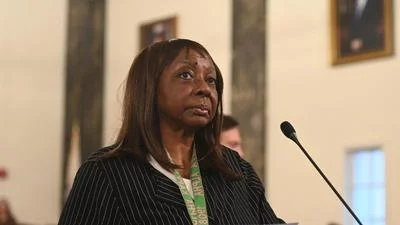Jeffrey Carter | West Loop Ventures
Jeffrey Carter | West Loop Ventures
Jeffrey Carter said the idea of property tax relief in Illinois is very appealing.
Getting real, substantive reductions, will be difficult to achieve in the state's current political culture, however.
The Illinois Legislature wrapped up a four-day special session early Sunday by passing a $40 billion budget for the fiscal year starting July 1, while also clearing tax hurdles that make a casino in Chicago more likely. Gov. J.B. Pritzker said he will sign both.
On Friday, a bill passed mandating counties delay interest penalties on late property tax payments for 120 days, as some counties have already done. Property tax sales in counties with less than 3 million people also was approved.
All homestead exemptions for 2020 were extended without application for qualified seniors, veterans with disabilities, and all disabled residents.
Carter, who writes about a variety of issues in his blog, told Chicago City Wire that the property tax issue merits close scrutiny. Illinois has the second-highest property taxes in the country, behind only New Jersey, according to a report.
“However, the devil is in the details of the bill and (House Speaker) Michael Madigan has not earned the trust of taxpayers in Illinois,” he said. “My guess is he will craft a bill that looks like property tax relief but really isn’t. There will be loopholes and carve-outs.”
The Legislature returned to work on Wednesday after more than two months away from the Capitol due to COVID-19 concerns. It was supposed to be a three-day session, but on Friday lawmakers agreed to extend it for one more day, completing their work until around 1 a.m. Sunday.
Carter is a veteran angel investor who served on the Chicago Mercantile Exchange board, co-founded the venture capital firm Hyde Park Angels and the financial-technology startup company West Loop Ventures.
He has experience working with politicians, serving as an adviser to the Group of Seven nations, Canada, France, Germany, Italy, Japan, the United Kingdom and the United States, discussing the future of work, artificial intelligence and big data.
He said tax issues should be a priority for Illinois politicians.
“Support tax relief for sure,” Carter said. “There should be caps on the amount taxes can be raised and a cap on the percentage that tax can be levied on a home. Property tax reform is needed badly. It is important to voters, but many of the voters whom it is important to are leaving the state rather than waiting for a profligate Legislature to pass something."
“People I know are fleeing the state,” he said. “They are hitting bids and selling their homes or they are renting them out and leaving. Some are keeping their home but changing residency.”
His words matched those of House Minority Leader Jim Durkin (R-Western Springs), who assailed the Legislature’s failure to address vital issues.
“We have abdicated our responsibilities, and it’s unfortunate,” Durkin said. “There was a comment made earlier about people suffering. Yes, they are suffering. But I’ve got some news for you, it will continue. Even after the vaccination has been delivered, they will continue to suffer because the legislature looks in the other direction on the most pressing, the most important issues that face us.”
Property tax relief was anticipated to be a major issue at the 2020 legislative session. The Legislature created a special Property Tax Relief Task Force in 2019 that issued a draft in January. Durkin said then that the proposal was unacceptable.
“Following the release of their draft within the last week, we once again see [House Democrats] refuse to be serious … at a time when our citizens are so desperate and wanting for change in state government,” he said at a Chicago press conference.
But when the pandemic hit in late winter, tax revenue collapsed and property tax reform, once considered an important part of this session, was pushed aside in an effort to patch an $8 billion hole in the state budget.






 Alerts Sign-up
Alerts Sign-up